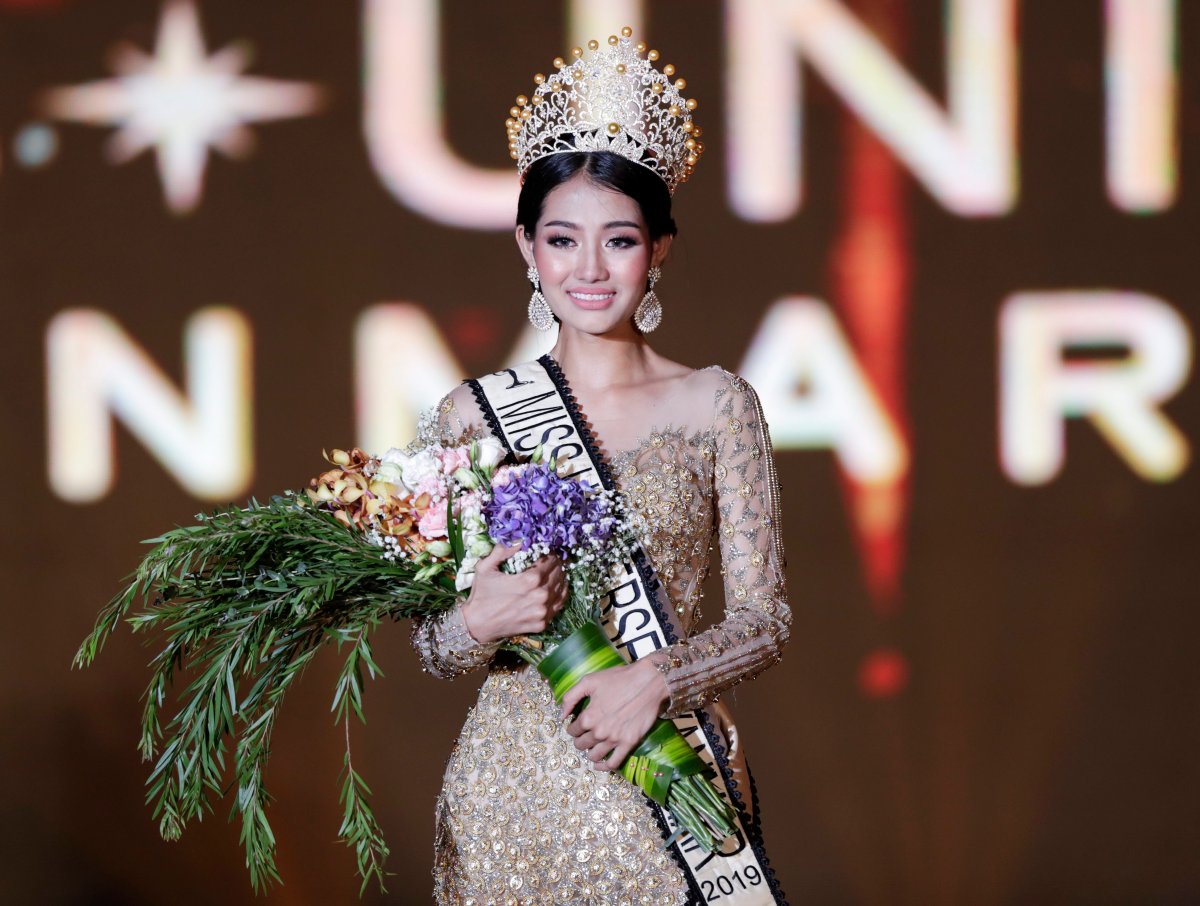This year’s Miss Universe pageant made history, as the organization celebrated its first openly gay contestant from Myanmar.

While she may have failed to advance to the top 20, all eyes remain on 20-year old competitor Swe Zin Htet, whose homeland still considers homosexuality a punishable crime.
Swe Zin Htet, also known as “Superman” to her fans, reportedly came out as a lesbian during an interview posted on Missosology, a pageant forum, shortly after arriving in Atlanta on Nov. 28 for the competition.
“I came to a full realization about my sexual orientation over a long period of time,” she said.
“I knew I was ‘one of them’ way back in 2015.”
Coming out publicly isn’t easy, Htet said, but she wants to use her platform to help those identifying as LGBTQ2 in Myanmar.
“I want the world to accept the LGBTQ+ community and their right to choose their own path and pursuit of happiness,” said Htet. “We should always have the freedom of choice and promote equality.
“Love is the most powerful thing and people fall in love with human beings, not gender.”
The following day, the Miss Universe contestant posted a photo collage on Instagram, overlaid with a rainbow flag and the word “Proud.”
Htet’s coming out is striking, particularly in light of Mynamar’s strict laws that prohibit same-sex relationships.
According to Section 377 of Myanmar’s penal code, homosexuality is akin to “unnatural behaviour” and subject to permanent exile or a lengthy imprisonment of up to 10 years — a remnant of the British Empire.

The law isn’t widely enforced, but the social prejudice still exists. Those identifying as LGTBQ2 still face a greater frequency of arrests, high rates of domestic abuse and violence, and discrimination in the workplace.
Homophobia is prevalent in a variety of countries in Southeast Asia, like Singapore, where having gay sex is punishable with jail time. Brunei nearly imposed the death penalty for it in May.
The law remains on the books in more than 40 countries across the world, but a global movement to undo the colonial legacy is gaining momentum.
Across the continent, activists are going to the courts to challenge discrimination of LGBTQ2 people and force legislators to act.
Several countries, including India, Botswana and Belize, have overturned Section 377 or similar anti-gay legislation in recent years, bolstering hopes that activists can achieve the same in other countries that were once British colonies.
Earlier this year, Taiwan became the first place in Asia to legalize marriage equality. Litigation for marriage equality is currently underway in Hong Kong, Japan and South Korea.
But petitions in China and the Philippines were rejected, and conservative values and deep-rooted biases have hamstrung progress on gay rights in countries including Myanmar, Indonesia and Malaysia.






Comments